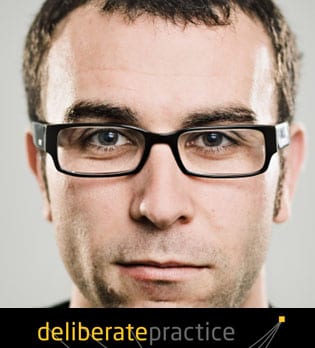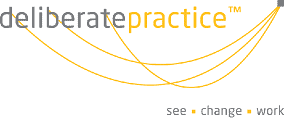Lately, I’ve reflected on the many people I’ve coached throughout my career as an HR consultant, Career Coach and Outplacement specialist. More often than not, they reached out after experiencing a redundancy event and consequential outplacement program.
Soul Searching

Unexpected career transition of this nature often lead to a period of soul searching with unemployment prompting deep reflection about job satisfaction, skills, preferences, tensions and career exhilarations. The perspective of Career Transition Coach offered the platform and guidance about where to go next or what to do next.
Other clients revealed that it wasn’t a redundancy that prompted a career change but the realisation they’d been running like a hamster on a wheel – constantly moving but never moving forward. They felt as though they were working to the point of exhaustion, without any sense of career advancement or even nourishment.
Sometimes it went deeper, like the treat they craved was wearing off too fast, and what once was a satisfying dish (success) had become an unsatisfactory loop of sugar hits, nothing more than short-term gratification. The little wins and gains often become an inefficient way to avoid the truth about what long term happiness looked like for them. This pattern of expectation and disappointment becomes demotivating and eventually fast-track an unwillingness to try new challenges.
It’s easy to get stuck. Stuck in our thoughts, in a job we no longer love where we work on things that no longer excite us; stuck trying to figure out the next move. The weight of unhappiness can be exhausting, leading to complacency, burnout, stagnation, and depression.
We know deep down we are ready for a career change but can’t quite figure out how to make it happen or move on it.
For some, the ease of staying where you are because the salary is ok, the job isn’t horrible, but it’s not what you love outweighs the desire to seek more, seek happiness, and seek professional fulfilment.
Searching for your personal definition of happiness or success often results in recognising you seek something different from your career. This is the moment you need to dig deep and consider reaching out to a career coaching or career transition professional.
Defining Success
Changing careers involves friction, disruption, risk, emotional ups and downs and understanding of what it takes to reinvent oneself. Achieving a meaningful career change can be scary. I get it. I salute the bravery of those who have taken the leap of faith necessary to open new doors to their careers, listening to their intuition to honour who they are. Even if it flies in the face of logic.
I think of those amazing people who relentlessly pursued success, despite setbacks. What is the common denominator in every person I have ever coached? They nearly always backed themselves, took risks, and chose happiness.
Everyone’s definition of success is different. Wanting success might be part of human nature, but the innate desire to be special and noticed doesn’t come cheap. Many people never feel successful enough and just want to get off the treadmill. The satisfaction of success wears off quickly, and we run toward the next reward to avoid the feeling of falling behind. Meaningful success comes from being happy and fulfilled professionally and privately – and it is achievable. You might just need a little help to get there.
COVID-19: a shakeup to pursue alternative careers or redefine self
It may seem counterintuitive, but COVID-19 has been a game-changer for many people. It offered them the opportunity to reflect on their current situation and contemplate changing careers. For some, the pandemic has driven a desire to pursue a purposeful career, accomplish more, define an individual purpose, and boost job satisfaction.
COVID-19 prompted individuals to develop curiosity about other professional fields or learn new skills. Flexible and remote working led many to redefine what we need and want from our careers and lives and re-evaluate the meaning of work.
Helen Tupper, the co-author of The Squiggly Career Guide, says,
“Even people who thought they had dream jobs before COVID-19 are reflecting on what these amount to now that they are working from their kitchens or bedrooms. While we may be attracted by the perks of a job like travel or a designer office, these can be distractions masking the more significant meaning we get from our work. Build in the fact that we’re socialising less and engaging in fewer leisure activities, how we spend eight of our waking hours has become all the more significant”.
“Stuck working from home, many lost the energising impact of face-to-face business meetings, networking, and being with others, revealing the bare bones of their jobs and exposing a lack of passion for what they do. “The risk is that just ‘doing’ the work dominates our days,” she says. “Instead, we need to think about what work gives you energy and what work takes it away. When you are at your best, and what action can you take to feel more like that more often? These are the sort of reflective questions that can give people back a sense of clarity and control.”
Leaders and Careers
Many of my clients invest in programs to build confidence and skill of their leaders to facilitate meaningful career conversations which is a litmus test to the increasing numbers of employees seeking conversations with their managers about their jobs and satisfaction. These are honest conversations (so as not to risk engagement purgatory) about their emotional connection to their work, workplace, and how they wish to be engaged, to springboard new possibilities and arrangements with their employer.
They are recognising their intrinsic value to their employer and aren’t afraid to start a conversation about what they need to feel really engaged and connected. Many employees are attuned to what improvements are needed to streamline the remote working experience, are curious about what else is available, and are confidently asking for change.
This begs the following questions regarding the people we lead:
- Who is not doing the job they love, and what impact is this having on the organisations overall performance?
- How many are on the treadmill, barely coming up to breathe?
- How many get real meaning from their work?
- How many are doing work that depletes energy rather than energising them?
- Who is getting value from their employment situation?
- What can I do to facilitate increased satisfaction and meaning for those I lead?
For many people COVID-19 confirmed they want purpose in their work, and that people can be fulfilled in all professions, taking with them, their transferrable skills. What it comes down to is how you feel about your work and how energised you are.
Start by asking yourself, do you come to the end of the day and feel a sense of pride or satisfaction about what you have done?
Steps towards a career change
To contemplate a meaningful career change, you need to invest in reviewing your career and work-related drivers. Identifying and articulating your core values, strengths, preferences, aspirations, and satisfactions is the first step in changing careers or direction.
These contextual considerations and self-insights are then supported by the process of exploration, decision making, planning, and action, often in a narrative partnership with a career coach or outplacement consultant. They form the basis of a journey of discovery to inform employability, enterprise skill, alignment and most of all, joy.
It can be scary to reject what has become a habit, but if you strive for happiness and satisfaction, and are prepared to regenerate, evolve, upskill or take a risk, consider taking the first step towards deeper professional fulfilment, through self-insight.
Start with these:
- Evaluate your current job satisfaction, those things you are proud of, aspects that you enjoy about your job, about your employer and which of your strengths are on display
- Take a personal inventory of your skills, interests, and values identifying any gaps for development or changes necessary for satisfaction
- Brainstorm careers – this requires much research and examination of the modern labour market; talk to your network and gather information on what is required for success
- Make an action plan with goals and milestones, including committing to upskilling, retraining, and networking (re-educate, get a career coach, mentor, etc.)
- Rebrand yourself. Know what your value proposition is and how to convey your story succinctly. Demonstrate your brand value in every interaction.
Think you’re ready to take the first step? Give me a call, and let’s start a conversation about what you want, today.
Our career coaching, outplacement and HR Consulting services in Melbourne and across Australia have helped hundreds of people move careers and find professional satisfaction. If this article resonated with you, reach out to us.
Call us at 1300335423



